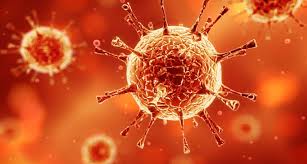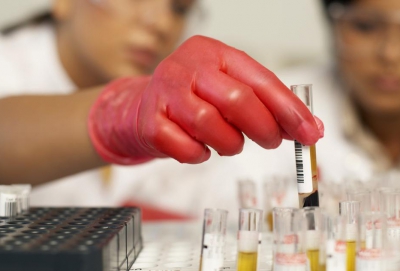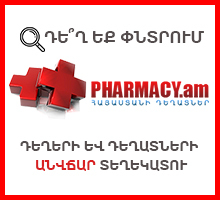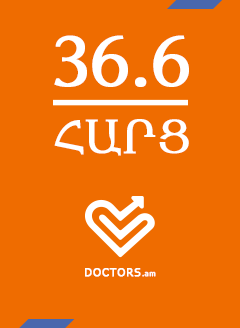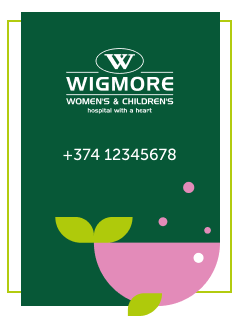The ongoing Ebola outbreak in West Africa is the deadliest in history, with more than 500 dead and hundreds more infected. The particular virus in this outbreak, known as the Zaire ebolavirus, is the deadliest type of the disease; it has killed 79 percent of those infected in previous outbreaks.
This isn't how an Ebola outbreak has to work. Researchers have devoted lots of time to building a vaccine that could stop the disease altogether — and according to Daniel Bausch, a Tulane professor who researches Ebola and other infectious diseases, they're making really significant progress.
Bausch says that the obstacle to developing an Ebola vaccine isn't the science; researchers have actually made really great strides in figuring out how to fight back against Ebola and the Marburg virus, a similar disease.
"We now have a couple of different vaccine platforms that have shown to be protective with non-human primates," says Bausch, who has received awards for his work containing disease outbreaks in Uganda. He is currently stationed in Lima, Peru, as the director of the emerging infections department of Naval Medical Research Unit 6.
The problem, instead, is the economics of drug development. Pharmaceutical companies have little incentive to pour research and development dollars into curing a disease that surfaces sporadically in low-income, African countries. They aren't likely to see a large pay-off at the end — and could stand to lose money.
Bausch and I spoke Wednesday afternoon about where things stand with developing an Ebola vaccine, what hurdles remain, and how you test a drug that only shows up in infrequent outbreaks. What follows is a transcript of our conversation, lightly edited for clarity and length.
Sarah Kliff: Can we start with where things are on the science of Ebola vaccines, and how much we know about the best way to prevent the disease?
Daniel Bausch: There have been some significant developments for both vaccines and treatments for Ebola and its sister virus, Marburg virus. We now have a couple of different vaccine platforms that have shown to be protective with non-human primates. The most notable development are monoclonal antibodies that are engineered to bind with the ebola virus. There have been breakthroughs in the past few years and, not only are they protective when given right after exposure, but they also work a few days after the illness starts.
That's the good news, but we've had a real break in trying to move forward to get these into human trials and get them out there as a real tool we can use for people infected with these viruses.
SK: So what stands between that science and getting these drugs to Ebola patients?
DB: Part of that is economics. These outbreaks affect the poorest communities on the planet. Although they do create incredible upheaval, they are relatively rare events. So if you look at the interest of pharmaceutical companies, there is not huge enthusiasm to take an Ebola drug through phase one, two, and three of a trial and make an Ebola vaccine that maybe a few tens of thousands or hundreds of thousands of people will use.
"THE DRUGS ARE OUT THERE. ITS MUCH MORE OF A SITUATION WITH ECONOMIC AND LOGISTICAL CHALLENGES."
There's not a huge demand for this, but there could be other ways to move forward. There are concerns, for example, about Ebola being used as bioterrorism, and that drives a lot of the funding for this. The Department of Defense might be interested in a vaccine if they thought the disease could be used as a weapon.
We need to find the mechanism to get to the next step, and get them out there for actual use.
SK: As you mention there are multiple phases of drug testing, starting with phase one tests for safety and then moving into later phases to test if the drug actually works. How far have the Ebola vaccine candidates you mention made it in that process?
DB: There is one vaccine that has gone through phase one testing [where the drug is tested on a small number of humans for safety]. Now the challenge is how do we get into phase two trials, which test efficacy. How do you plan a prospective trial of something that we don't know where it will be seen next, in outbreak form?
The drugs are out there. It's much more of a situation with economic and logistical challenges.
SK: Where does most the funding for research on the Ebola vaccine come from now?
DB: The research has been almost exclusively through the National Institutes of Health. I think a lot of that has been driven by our country's concern over bioterrorism, and the use of some viruses as weapons. I'm not saying that's not one legitimate reason to do research, but just that its a different driving force.









